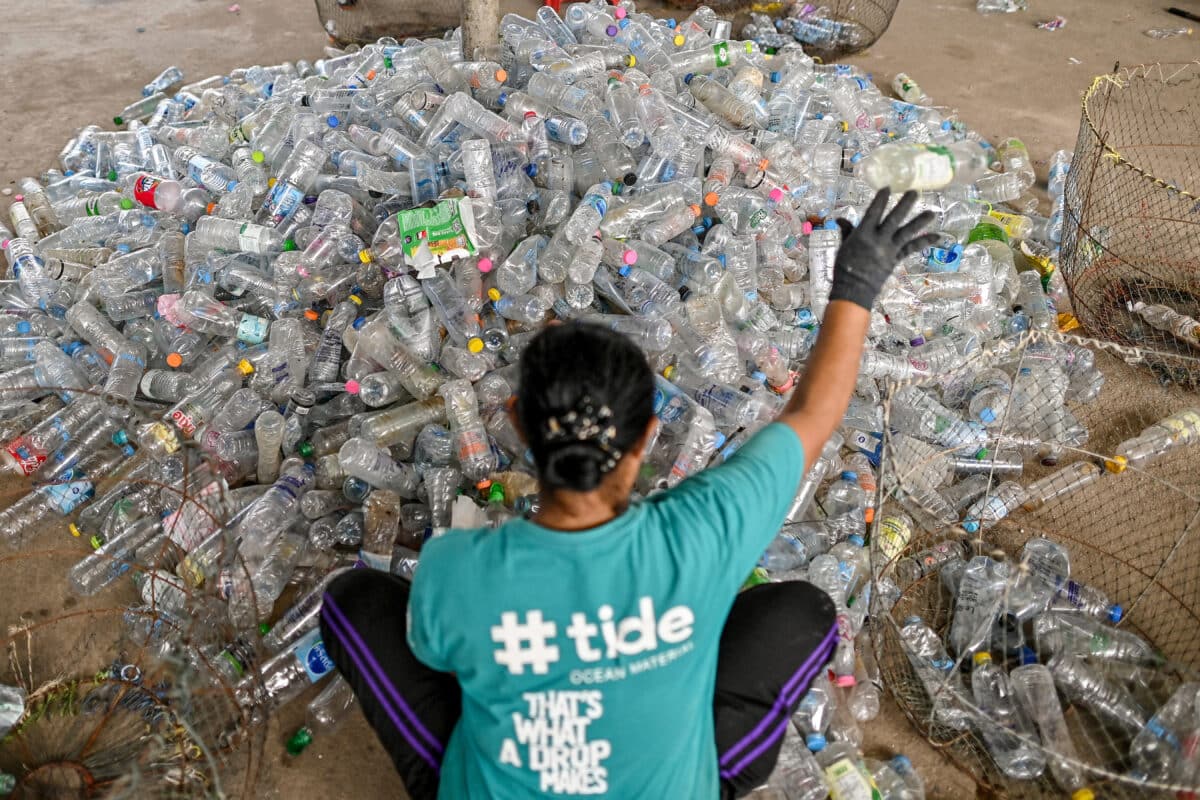

CODVIP
2024-11-03 09:27 Views:66


This photograph taken on September 23, 2024, shows a Tide staff member sorting plastic PET bottles at the Tide’s recovery facility in southern Thailand’s Ranong province. – Founded in 2019, Tide collects around 1,000 tonnes of plastic a year from Thailand and other locations. The collected plastic is processed into pellets before being shipped to customers like Condor Group, one of Europe’s largest carpet manufacturers. (Photo by MANAN VATSYAYANA / AFP)
Paris, France — Alternatives to petrochemical-based plastics are emerging, made from everything from banana leaves to tomato skins, especially for food packaging.
But questions remain about how biodegradable and compostable they are, as well as their impact on the environment.
Article continues after this advertisement What is biosourced plastic?Biosourced means made with less petrol, using non-fossil agricultural products such as sugarcane waste, corn, or wheat starch. Primarily used in packaging, these biosourced plastics account for less than one percent of global plastic production.
FEATURED STORIES GLOBALNATION Meet Luce, Vatican’s first-ever mascot GLOBALNATION PNP nabs 3 suspects in kidnapping of American in Zamboanga del Norte GLOBALNATION Misrepresentation rap vs GuoBut labs around the world are coming up with more and more new plastics derived from tomato skins or banana leaves.
READ: World pumps out 57 million tons of plastic pollution a year – new study
Article continues after this advertisementThe French chemicals company Arkema, for instance, is pushing PBAT, made from castor oil, which is used to make sports shoes and car interiors.
Article continues after this advertisementBananatex is a biodegradable textile made from banana leaves that has been developed by a Swiss brand and its Taiwanese partners.
Article continues after this advertisementHowever, “biosourced doesn’t necessarily have to be 100 percent” from natural materials, warned Christophe Doukhi de Boissoudy, president of the French association for biosourced compostables.
In Europe, the minimum 50 percent requirement to be considered biosourced “will rise to 60 percent in January 2025”, he added.
Article continues after this advertisement What is a bioplastic?The generic term “bioplastic” can be confusing, as it can mean either biosourced or compostable: the definition varies by country.
But in Europe, the term is clearly defined — a bioplastic is a polymer that is both biosourced and compostable, either in soil or industrially.
Not all bioplastics completely degrade under natural conditions.
Some, like PLA (polylactic acid), need to be composted industrially at temperatures between 35 and 60 degrees Centigrade (140 degrees Fahrenheit).
One of the most highly developed bioplastics currently used in textiles or for food packaging, PLA was originally fossil-based but is now being made from fermented plant biomass (corn, beet or sugarcane).
“What alarms us is the speed at which China is advancing its legislation to convert its packaging to PLA, aiming to abandon petrochemical plastics, while Europe is stagnating,” said Frederic Van Gansberghe, founder of Belgium-based bioplastics company Futerro, which has a factory in China and plans to open one in France in 2026.
What environmental impact?In its “Atlas of Plastic”, the Heinrich Boll Foundation estimates that most biosourced plastics are neither completely biodegradable or compostable, and “actually just sidestep the problem”.
For Nathalie Gontard, research director at the French National Institute for Agriculture, Food and the Environment, biosourced plastic “has absolutely no benefit” because these polymers don’t degrade in natural conditions but instead fragment into micro- and then nano-plastics.
“What matters is biodegradability under natural conditions,” she said.
“Biodegradable” is not well-defined, she argued, as some use it for materials that completely degrade in a few months or years, while others refer to much longer periods.
The environmental benefit of biosourced plastic lies in how they reduce the CO2 emissions of the plastics sector. But caution is needed here, experts warn.
“Additional demand for land to grow the raw materials for biosourced plastics can lead to land-use changes or deforestation,” the OECD warned, which in turn can increase CO2 emissions.
Subscribe to our daily newsletter
“By developing bioplastics, we place the burden of manufacturing these materials on agricultural land that should primarily serve to feed the population291bet,” insisted Pauline Debrabandere from the NGO Zero Waste.
READ NEXT Senate drug war probe transcript sent to ICC – Trillanes 5 Chinese citizens rescued from alleged abductor EDITORS' PICK PH government debt rises to P15.89T in September Spain races to save victims as floods kill 62 Siargao hosts biggest tournament yet: 28th Siargao Int’l Surfing Cup QS5000 Robredo calls out ‘irresponsible’ Naga City data on relief ops ‘Antoway’: Bontoc’s unique mourning for the dead at risk of dying LIVE UPDATES: Typhoon Leon MOST READ Comelec website uploads Con-Can of party-list group nominees Super Typhoon Leon to bring heavy rains over Northern Luzon LIVE UPDATES: Super Typhoon Leon LIVE: PBA Finals Ginebra vs TNT Game 2 October 30 Follow @FMangosingINQ on Twitter --> View comments